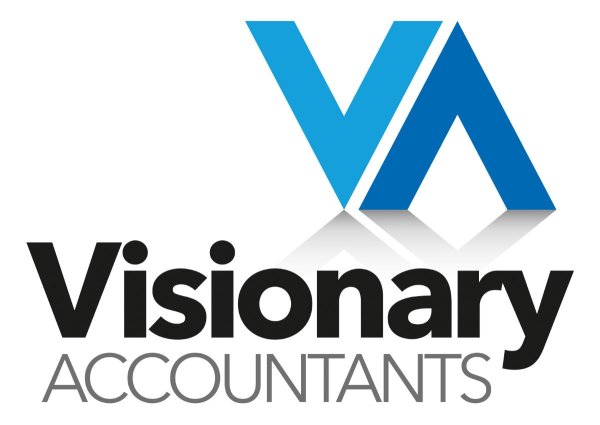National Minimum Wage & National Living Wage Changes – What Employers Need to Know from April 2025
As we approach the new financial year, UK employers must prepare for upcoming changes to the National Minimum Wage (NMW) and National Living Wage (NLW), which will take effect from April 2025.
Understanding these changes is crucial — not only for remaining compliant with employment law but also for accurate payroll budgeting and workforce planning. Here's a breakdown of what’s changing and what it means for your business.
✅ Key Headlines
-
The National Living Wage (NLW) will increase to £11.66 per hour.
-
Eligibility for the NLW will remain at age 21 and over.
-
All age brackets of the NMW will also see increases.
-
Apprentice pay rates will rise too.
-
Businesses must prepare to adjust payroll systems and employment contracts ahead of April 2025.
New Wage Rates from 1 April 2025
| Age Group | Current Rate (2024) | New Rate (2025) | Increase |
|---|---|---|---|
| 21 and over (NLW) | £11.44 | £11.66 | +£0.22 |
| 18–20 | £8.60 | £8.95 | +£0.35 |
| 16–17 | £6.40 | £6.75 | +£0.35 |
| Apprentices | £6.40 | £6.75 | +£0.35 |
Note: Apprentices are entitled to the apprentice rate if they are under 19 or in the first year of their apprenticeship.
What This Means for Employers
-
Increased Wage Costs
-
Budgeting must account for the increased rates across all eligible workers.
-
Small businesses may feel the squeeze more acutely, so early financial planning is essential.
-
-
Payroll Adjustments
-
Review payroll systems to ensure rates are updated in time.
-
Failure to pay the correct rate can result in HMRC penalties and being named in public non-compliance lists.
-
-
Contract Reviews
-
Employment contracts referencing hourly rates or pay bands should be reviewed and updated accordingly.
-
-
Communication with Staff
-
Proactively inform employees of wage increases to maintain transparency and morale.
-
Why These Changes Are Happening
These increases are part of the UK Government’s strategy to:
-
Support workers with the rising cost of living.
-
Narrow the gap between age groups in pay.
-
Move towards the long-term goal of the National Living Wage reaching two-thirds of median earnings.
The Low Pay Commission (LPC) advises the Government on these annual changes, based on:
-
Economic forecasts.
-
Inflation trends.
-
Labour market conditions.
Common Questions from Business Owners
❓ Do I have to pay these rates even for part-time or temporary workers?
Yes. All employees and workers (including part-time, casual, zero-hour, and temporary staff) are entitled to at least the minimum applicable rate for their age or role.
❓ What about freelancers or contractors?
If someone is genuinely self-employed or contracted through a limited company, NMW/NLW rules may not apply. However, ensure you’re classifying workers correctly — misclassification can lead to fines.
❓ What happens if I pay below the minimum wage by mistake?
If you underpay:
-
You must pay arrears immediately, calculated at the current rate.
-
You may face fines of up to 200% of the underpayment (capped at £20,000 per worker).
-
You could be publicly named and shamed by HMRC.
❓ Do wage increases impact other employee entitlements?
Yes. Higher wages may:
-
Affect pension contributions.
-
Change entitlement thresholds for benefits or bonuses.
-
Influence contractual pay differentials between roles.
Action Steps for Business Owners
-
Audit Your Workforce
-
Identify all employees impacted by the new rates.
-
Confirm their correct age bracket or apprentice status.
-
-
Update Payroll Software
-
Ensure your payroll provider or internal system is updated ahead of April.
-
-
Review Employment Contracts
-
Make necessary changes to written terms that refer to hourly wages.
-
-
Budget Accordingly
-
Factor increased wage costs into your 2025–26 financial forecasts.
-
-
Communicate Clearly
-
Let your staff know when the new rates will come into effect and what their new pay will be.
-
-
Get Professional Advice
-
Speak to your accountant or HR advisor to ensure you remain fully compliant.
-
Final Thoughts
With April 2025 just around the corner, now is the time to act. Staying on top of the changes to the National Minimum and Living Wages will help you avoid penalties, protect your business’s reputation, and maintain good employee relations.
At Visionary Accountants, we’re here to support you through every payroll and compliance challenge. If you have questions about how these changes will affect your business, get in touch with us today.
Need Help?
Contact the team at Visionary Accountants for tailored advice on payroll, employment costs, and compliance.
Email: enquiries@visionaryaccountants.co.uk
Tel: 01727 730 550
Web: www.visionaryaccountants.co.uk
